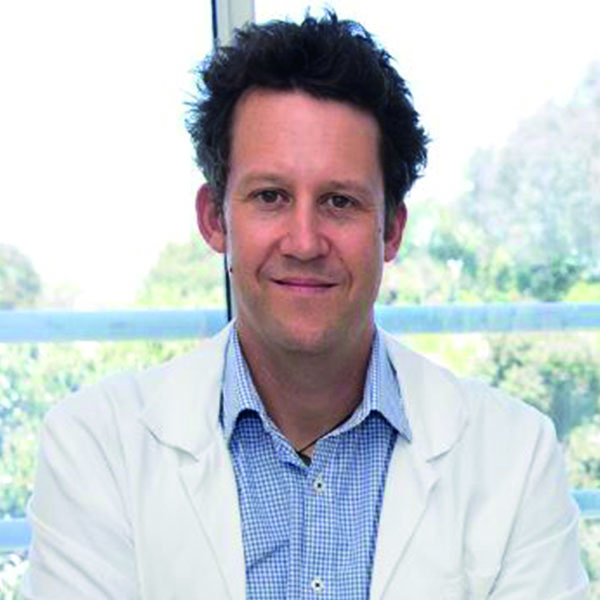Foreword From Research Director

A/Prof Matthew Kemp
Research Director
Department of Obstetrics & Gynaecology
Yong Loo Lin School of Medicine
National University of Singapore
Historical Landscape
The Department of Obstetrics and Gynaecology of the National University Hospital has a long history of influential and cutting-edge research. From its inception in 1922 and particularly from the 1940s under President Professor Benjamin Sheares, we witnessed the pioneering of innovative procedures in gynaecological surgery including lower segment Caesarean section and creation of an artificial vagina in women born without one, a surgical technique still in use today. Under Professor SS Ratnam and Professor Ariff Bongso, the Department pioneered sex reassignment surgery with the first sex-change operation performed in 1971, variations of assisted reproduction techniques which were medical breakthroughs of the time, and pioneering innovative research in human stem cell biology. Since then, we have continued to push the boundaries of clinical, epidemiological and scientific research through the organic development of scientists and clinician-scientists within the department, and via key local and international collaborations. The importance of these achievements are underscored by a number of preeminent Department members and alumni winning international leadership posts, including headships and presidencies of the Asia and Oceania Federation of Obstetrics and Gynaecology (Emeritus Professor S. Shan Ratnam), International Federation of Obstetrics and Gynaecology (Emeritus Professor S. Shan Ratnam, Prof Sir Sabaratnam Arulkumaran), Royal College of Obstetricians and Gynaecologists (Prof Sir Sabaratnam Arulkumaran), British Medical Association (Prof Sir Sabaratnam Arulkumaran), International Fetal Medicine and Surgery Society (A/Prof Mahesh Choolani), International Society for Prenatal Diagnosis (A/Prof Mahesh Choolani) and Dean, Yong Loo Lin School of Medicine, NUS (Prof Chong Yap Seng).
Current Landscape
We have designed and built our research programme to focus on the major issues concerning the Singapore population which have been identified as (1) infertility, (2) high risk pregnancies and congenital disorders, (3) healthy growth and disease prevention, (4) sexuality and (5) disorders of ageing. The department has positioned itself to pursue research in reproductive and developmental biology, which apply to many health and disease conditions and challenge multiple boundaries in current clinical practice, and address societal issues such as birth rate and population health, top national priorities. The Reproductive Developmental Biology Programme (RDB) has consistently encompassed a longitudinal “conceptus to end-of-life” overview of reproductive science. We aim to develop a centre of excellence in reproductive and developmental biology research to oversee the development of new knowledge in these areas, to develop and translate novel innovative therapies (such stem cell and gene therapies) and to create national and international leadership in these areas.
Key Research Areas
The following are the key programmes and sub-programmes:
Fetal Development and Growth
- Reproductive Stem Cells Sciences
- Fetal Medicine and Therapy
- Developmental Origins of Health and Disease (DOHaD)
Healthy Aging
- Integrated Women’s Health Programme
- Sexual Medicine
- Nuclear Receptor Biology & Drug Development
- Ovarian Cancer
Recent Research Highlights
We have established the intensively studied Translational Clinical Research birth cohorts (Growing Up in Singapore Towards Healthy Outcomes, GUSTO), the most detailed assessment of infant development in the world. GUSTO has attracted international attention for its findings on gestational diabetes, fetal growth and cognitive development. Important management mindset shifts have occurred as a result of this multidisciplinary cohort study, including universal screening for GDM and early surveillance for prenatal anxiety and depression.
The Experimental Fetal Medicine Group performed the second and third cases in the world of intrauterine mesenchymal stem cell therapy for fetuses diagnosed with osteogenesis imperfecta, and have obtained approvals for clinical trials in stem cell tissue engineering for critical fractures and wounds. We continue to pursue innovative research in fetal transplantation, gene therapy and gene modification and fetal-maternal immunology in small and large animal models and by studying human tissues.
The Nuclear Receptor and Drug Development programme has elucidated the crystal structure of the human folate receptor and plant abscisic acid receptors which was a breakthrough in imaging science. We have obtained Health Sciences Authority (HSA) approval has been obtained for clinical trials of the pharmaceutical-quality botanical drug Epimedium for post-menopausal osteoporosis.
The Ovarian Cancer group has made significant advances in the area of molecular subtyping of specific ovarian cancer using qPCR(RH) and microarray for personalized treatment. Numerous patents, industrial funding and tie-ins have also resulted from individual and collaborative efforts.
The Nutritional Intervention Preconception and during Pregnancy to maintain healthy glucose levels and offspring health (NiPPeR) clinical trial investigates the efficacy of a special nutritional formulation containing myo-inositol, probiotics and additional micronutrients in improving glucose metabolism during pregnancy, as well as pregnancy and child outcomes. Such trials offer the prospect of new strategies in optimising maternal health before pregnancy in order to promote healthy fetal development.
The stem cell team team is evaluating the hematopoietic engraftment potential of hematopoietic stem cells (HSCs) co-transplanted with mesenchymal stem cells from the Wharton’s jelly (hWJSCs) of the human umbilical cord in preclinical xenograft animal models with the hope of providing alternate treatment strategies for malignant hematopoietic diseases.
